Update: There is nothing wrong with the code in the question, the true problem was embedded NUL characters in the files, which caused problems in R, and which opening and resaving in Notepad implicitly removed, thereby resolving the problem (assuming that simply discarding these NULs works as intended) - see also: wp78de's answer.
Therefore, modifying the $contents = ... line as follows should fix your problem:
$contents = [IO.File]::ReadAllText($_) -replace "`r`n", "`n" -replace "`0"
Note: The code in the question uses the Out-FileUtf8NoBom function from this answer, which allows saving to BOM-less UTF-8 files in Windows PowerShell; it now supports a -UseLF switch, which would simplify the OP's command to (additional problems notwithstanding):
Get-Content 000014.log | Out-FileUtf8NoBom ddppyyyyy.txt -UseLF
There's a conceptual flaw in your regex, though it is benign in this case: instead of "`r`n?" you want "`r?`n" (or, expressed as a pure regex, '\r?\n') in order to match both CRLF ("`r`n") and LF-only ("`n") newlines.
Your regex would instead match CRLF and CR-only(!) newlines; however, as wp78de points out, if your input file contains only the usual CRLF newlines (and not also isolated CR characters), your replacement operation should still work.
In fact, you don't need a regex at all if all you need is to replace CRLF sequences with LF: -replace "`r`n", "`n"
Assuming that your original input files are ANSI-encoded, you can simplify your approach as follows, without the need to call Out-FileUtf8NoBom first (assumes Windows PowerShell):
# NO need for Out-FileUtf8NoBom - process the ANSI-encoded files directly.
Get-ChildItem *SomePattern*.txt | ForEach-Object {
# Get the contents and make sure newlines are LF-only
# [Text.Encoding]::Default is the encoding for the active ANSI code page
# in Windows PowerShell.
$contents = [IO.File]::ReadAllText(
$_.FullName,
[Text.Encoding]::Default
) -replace "`r`n", "`n"
# Write the text back with BOM-less UTF-8 (.NET's default)
[IO.File]::WriteAllText($_.FullName, $contents, $utf8)
}
Note that replacing the content of files in-place bears a risk of data loss, so it's best to create backup copies of the original files first.
Note: If you wanted to perform the same operation in PowerShell [Core] v6+, which is built on .NET Core, the code must be modified slightly, because [Text.Encoding]::Default no longer reflects the active ANSI code page and instead invariably returns a BOM-less UTF-8 encoding.
Therefore, the $contents = ... statement would have to change to (note that this would work in Windows PowerShell too):
$contents = [IO.File]::ReadAllText(
$_.FullName,
[Text.Encoding]::GetEncoding(
[cultureinfo]::CurrentCulture.TextInfo.AnsiCodePage
)
) -replace "`r`n", "`n"

